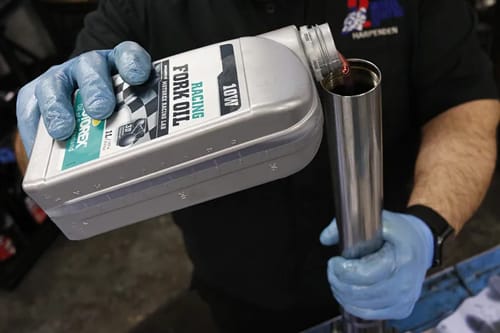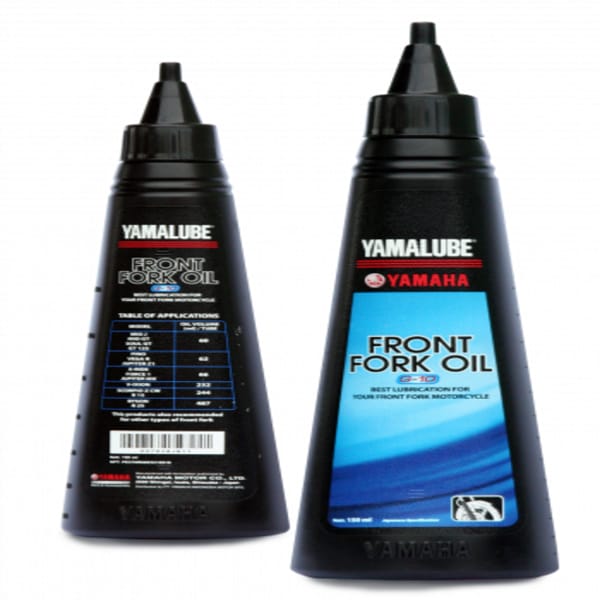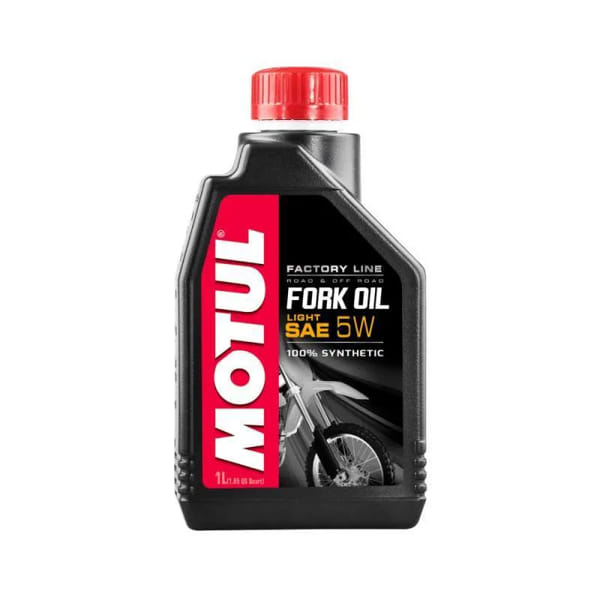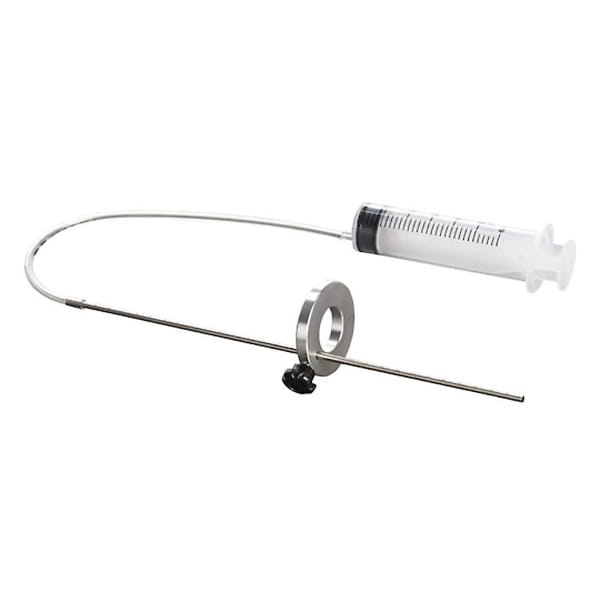Motorcycle enthusiasts understand the importance of regular maintenance to ensure optimal performance and longevity of their bikes.
One essential component that often goes unnoticed is the fork oil. In this article, we will delve into the world of fork oil for motorcycles, exploring its purpose, significance, and alternatives.
We will also touch upon specific brands like Yamaha and Motul, as well as considerations such as viscosity, capacity, and price. So, let’s dive in!
What Is Motorcycle Fork Oil & Its Use

Motorcycle fork oil is a specialized lubricant designed to provide smooth operation and damping control in the suspension forks of motorcycles.
It serves a crucial role in reducing friction, preventing wear and tear, and maintaining optimal performance of the front suspension system.
Fork oil acts as a hydraulic fluid, working in conjunction with the internal components of the forks to absorb shocks and bumps encountered during riding.
How Important Is Fork Oil for Motorcycles

The significance of fork oil cannot be overstated. It directly affects the handling, stability, and overall ride quality of a motorcycle.
Properly maintained and high-quality fork oil ensures smooth compression and rebound damping, allowing the suspension to effectively absorb and dissipate energy from road imperfections.
It also prevents excessive oscillation, wheel chatter, and front-end dive, ensuring better control and rider confidence.
When to Change the Fork Oil in the Motorcycle

Regular maintenance of fork oil is vital for optimal performance and safety. The recommended interval for changing fork oil varies depending on factors such as riding conditions, motorcycle model, and fork oil type.
However, a general guideline suggests replacing fork oil every 10,000 to 15,000 kilometers or every one to two years.
Signs indicating the need for a change include reduced suspension performance, fork seal leaks, excessive fork oil contamination, or a change in the fork oil’s color and consistency.
Do Other Alternatives Work as Good as Fork Oil?

While fork oil is specifically formulated for motorcycle suspensions, some alternative options might suffice in certain situations.
However, it is crucial to exercise caution and consult with experts or the motorcycle manufacturer before using any substitutes. Fork oil alternatives may include transmission oil, ATF (Automatic Transmission Fluid), or specific shock oils.
These alternatives may offer comparable performance to fork oil but might lack the specific additives and characteristics necessary for optimal suspension function.
Hence, it is advisable to stick to the manufacturer’s recommendations and utilize dedicated fork oil for the best results.
Specific Brands and Considerations:
1. Yamaha Fork Oil

Yamaha, a renowned motorcycle manufacturer, produces its own range of fork oils designed for their motorcycles.
These oils are formulated to meet Yamaha’s strict specifications and provide excellent damping characteristics and long-lasting performance.
2. Motul Fork Oil

Motul, a trusted brand in the motorcycle industry, offers a wide range of fork oils catering to different motorcycle models and riding styles.
Motul’s fork oils are known for their high-quality formulation, consistent viscosity, and excellent lubricating properties, ensuring optimal suspension performance.
3. Fork Oil Level Gauge, Viscosity, Capacity, and Price

To ensure precise measurement and maintenance, fork oil level gauges are available on the market. These tools allow riders to accurately determine the fork oil level, ensuring consistency and performance.
When selecting fork oil, considering the recommended viscosity and capacity specified by the motorcycle manufacturer is crucial.
Prices of fork oil may vary depending on factors such as brand, quality, and geographical location. For example, in the Philippines, fork
FAQ
Is Motorcycle Fork Oil The Same as Hydraulic Oil?
No, fork oil for motorcycles is not the same as hydraulic oil. They are formulated differently and serve different purposes.
Fork oil is specifically designed for motorcycle suspensions to provide optimal damping control, while hydraulic oil is used in various hydraulic systems for power transmission and lubrication.
They are not interchangeable, and using the wrong oil can compromise performance and potentially damage the suspension components.
How Much Fork Oil Do I Need?
The amount of fork oil required for your motorcycle depends on its make, model, and front suspension type.
To determine the correct amount, consult your motorcycle’s owner’s manual or service manual.
Using a fork oil level gauge or seeking guidance from a professional mechanic can ensure accurate measurement and optimal suspension performance.
What Is The Viscosity of Motorcycle Fork Oil?
The viscosity of motorcycle fork oil varies depending on factors such as brand, model, and riding conditions.
It is typically measured using the SAE scale, with common grades including 5W, 10W, 15W, and 20W.
Thinner oils (lower viscosity) are suitable for lighter loads and smoother roads, while thicker oils (higher viscosity) are better for heavier loads and rougher terrain.
Refer to the manufacturer’s recommendations to determine the appropriate viscosity for your bike’s front suspension.
Originally posted 2023-06-19 20:10:12.
